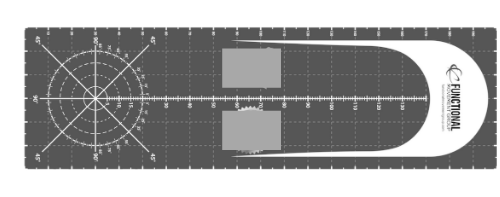Until the 2010’s sports physiotherapy assessment had traditionally used an impairment-based orthopaedic model that was highly subjective in nature and utilised tests with low specificity and sensitivity, and not directly related to the patient’s function and capacity to achieve their individual goals.
Australian physiotherapist and osteopath Stephen King and osteopath Andrew Lemon were early users of objective functional performance testing in their Melbourne sports clinic. To use the standardised tests they made markings on the floor of their treatment room. Constrained by the small 3 x 3 metre space and the desire to reduce the confusion of multiple markings they began to overlay the markings of new functional performance tests.
Portability became important so they could repeat the battery of tests wherever their athlete patient’s trained, so King and Lemon repeated the markings on a thin foam mat, and in 2013 the Movement Assessment Tool (MAT) was born. With an even smaller area available further refinement of the placement of the markings occurred.
The MAT allows for 30+ standardised tests in 3 planes of motion to measure and collect data on physical capacities such as strength, power, flexibility, endurance, balance and proprioception, agility and movement patterns.
Recognising the value of a portable marked testing surface their friends and colleagues requested copies of the MAT. King and Lemon created a giant stamp and began to produce MAT’s in smaller quantities. As demand increased around the world production moved offshore and to a 3D printing process. Over ten thousand MAT’s are now being used around the world.
Description provided by Stephen King of Australia.

